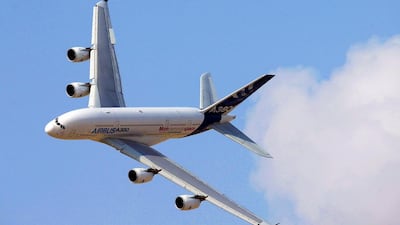Overseas travel is a big part of my job, and my employer is very tight on the travel budget. As a result I often have to fly long-haul in economy and then hit the ground running, attending meetings and the such like on limited sleep. While I have no problem flying economy on shorter flights to Qatar, Pakistan or Bahrain, I do resent flying in coach to Australia and Hong Kong, and sometimes even the United States, as I arrive tired, crumpled and disorientated and often find it hard to concentrate on the ground. How can I ask for an upgrade without sounding difficult or as though I am not a team player. AN, Dubai
I have huge sympathy for this challenge. In fact I am writing this in the early hours of the morning, wide-awake because I flew yesterday and my body clock has not yet adjusted.
The problem is that as times continue to be tight and businesses look for ways to reduce costs, travel budgets are coming under increasing scrutiny. The days of indiscriminate business class travel have probably disappeared for good. However, organisations do need to beware of false economies. There is no point in saving a thousand dollars on a ticket and then the traveller being too tired or disorientated to negotiate properly with suppliers, make telling contributions in critical meetings, make difficult decisions or have constructive conversations with colleagues, customers or other stakeholders. The cost of such failures can be far, far more expensive than the money saved.
In recent months, I have personal experience of, or have heard reliable accounts of each of the following: someone being so tired in the afternoon meeting after an all-night flight in economy that they fell asleep in the meeting … someone being so grumpy after a similar all-night flight in economy that, when the customer began to resist a recommendation, the company representative became just plain rude … someone unable to complete a vital document because there was simply too little room to use a PC in coach … someone completely mishandling an important internal issue because they were just too tired to concentrate properly … and someone actually leaving an organisation because they found the travel regime so uncomfortable.
The problem is that, when we are uncomfortable, or overtired, or irritable or jet-lagged, we find it more difficult to manage our behaviours or to access our best game. We might be aware of all the things stacked up in our debit column, but we can’t any longer manage the fallout from being physically and mentally overdrawn for too much of the time.
So, what are companies supposed to do to help? I think the answer is to be proportionate. Nobody needs a ticket other than economy for a short-haul flight in the same time zone, or where there is minimal time difference. But if a flight is longer than four hours, or is overnight, or is intercontinental, then I think that organisations need to beware of the false economy that a seat in coach represents. Many airlines now offer a class between coach and business, and this is a useful compromise for longer daytime flights. Try to build in “recovery time” at the destination rather than go straight in to a meeting. Try to fly in day time as much as possible – often, while a better seat on the plane may be too expensive for a company to swallow, an extra night in a hotel before travelling back is a much less expensive and more palatable option.
In my view, an overnight, intercontinental flight deserves a business class seat, especially if the traveller is expected to be on the top of their game immediately after disembarking.
So, how do you set about asking for a better seat when you travel? Make the arguments I suggest here, make sure that you know the cost to the company of upgrading you and make sure the company knows the downside risk if they do not. Find out what others in your organisation think. Is yours a widely held frustration? If so, who in a senior position might support you in trying to get the approach changed? Getting senior people on board is always a good start.
Make sure that the company is as efficient as it can be. Explore things like the benefits of booking well in advance, and of course explore the possibility of centralised buying and of corporate discounts which might allow a better seat to be bought. There are travel agents who specialise in business travel and seem able to get really good prices for clients. It may be worth exploring this option and suggesting it to your organisation.
See if any of the travel can be charged to your clients or stakeholders. Or can it be built in to the charges you make for your goods or services? When you make your pitch, make sure people understand this is about you wanting to perform to your best, for the benefit of the organisation.
Doctor's prescription: It's about being better at what you do when you travel, and not about going on ego trips.
Roger Delves is director of the Ashridge Executive Masters in Management and adjunct professor at Hult International Business School. He is co-author of the book The Top 50 Management Dilemmas: Fast Solutions to Everyday Challenges. Email him at business@thenational.ae for advice on any work issues
Follow The National's Business section on Twitter

